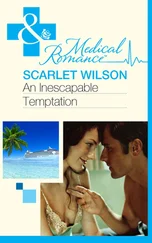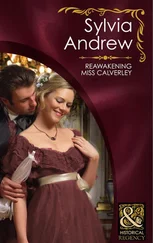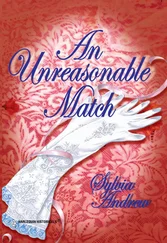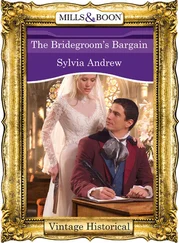‘Then why on earth did your mother send you?’
‘She was worried about my future and hoped that I would find a husband. If I had been able to make a good match it would have solved the chief of her worries. When Mrs Young offered to have me with her for the Season, Mama was delighted. Poor Mama! She was so sure that some gentleman or other would be glad to marry the granddaughter of a Duke. So she sold everything she had left that was of any value and sent me off to London.’
‘It was mad to do such a thing!’
‘It wasn’t very sensible, I agree. It meant that later, when times were hard, she had nothing to fall back on. But Mama was like that. She took the risk because she loved me. She knew that the Inglesham family were to be in London that year for the season, so she wrote to them. I think she hoped that…that they would take an interest in me, once I was there in front of them, so to speak. But they refused even to acknowledge me. And the rest of the Ton followed suit.’ When Hugo gave a muffled exclamation Deborah said fiercely, ‘I didn’t mind! I could see as soon as I arrived that I wouldn’t “take”, as they say—even if I’d had twice as many dresses and jewels and introductions. And the Ingleshams were just the sort of people I disliked most. I disliked London, too. I sometimes thought that you were the only creature in the capital who cared anything at all about me.’
Hugo walked on in silence for a moment, frowning. Then he said brusquely, ‘Why didn’t you tell me this before? After you had tipped us both into the lake I was pardonable angry. It was the last in a whole series of mishaps and I had had enough. But you let me drag you back to Mrs Young’s, ranting all the while, swearing never to see you again and you didn’t say a word—not a word—of all these difficulties! Do you think I’d have rejected you quite so comprehensively if I’d known?’
‘I didn’t want your pity!’ flashed Deborah. Then she gave him a fleeting grin. ‘Besides, as I remember it, Hugo, you didn’t give me a chance to say anything at all! You’re very fluent when you’re in a rage. Anyway, there was little enough you could have done. I’m not sure whether you knew or not, but the morning after that awful episode news came that Papa was ill, and I left London for good.’
‘All the same…’ Hugo was seriously upset, and Deborah tried to comfort him.
‘I didn’t blame you, Hugo. Really, I didn’t. After all your kindness to me I’d disgraced you again. You called it the curse of the Stauntons, and you were right.’
There was silence for a moment, then Hugo said, ‘Are you going to tell me why Miss Staunton left for Ireland so unexpectedly—leaving you to fend for yourself?’
‘I can tell what you are thinking, and once again you’re right!’ Deborah’s tone was bitter. ‘The Stauntons are not at all good Ton. I’m surprised you even bother to talk to one.’
‘Don’t be so stupid, Deborah!’
‘It’s not stupidity,’ she cried. ‘It’s shame! The real reason my aunt left was because she had taken money that wasn’t hers.’
‘What? What money?’
‘Mine! As I learned this morning from Aunt Elizabeth. I thought that the Inglesham allowance had finished when my mother died, but it hadn’t. It was transferred to me—though no one told me at the time.’ Deborah’s voice trembled and she stopped for a moment. Then she went on, ‘For eight or nine months my aunt regularly collected my allowance from the lawyer in Buckingham and said nothing at all about it. I suppose she simply pocketed the money.’
‘So that is why she left so suddenly? You started to suspect her?’
‘Far from it! I might have been puzzled when she packed and left within twenty-four hours, but I kissed her fondly and wished her a safe journey. I was a gullible fool. But she was in some kind of trouble, and I think she was running away from something—or someone. There was a man who called the day before she left. They had a furious argument—I don’t know what it was about, but I heard money mentioned. He left in the end saying that he would be back. She packed her things and departed early the next morning.’
‘With no thought for you?’
‘Well, before she went she did advise me to leave Maids Moreton as soon as possible. And I did.’
‘Did you see this man again?’
‘No. And I didn’t want to. He was dressed like a gentleman, but he didn’t behave like one. He frightened me.’
‘Have you told Aunt Elizabeth about this man?’
‘No! And I’m not going to!’ She clutched his arm. ‘Hugo, you mustn’t mention it either. It’s not as if I’m not in any danger, and…and the whole shameful episode is better forgotten.’
‘There’s no need to ruffle your feathers and stare at me so fiercely. I think you’re right. There’s no reason to upset Aunt Elizabeth. This man, whoever he is, is unlikely to come here. And I don’t suppose your Aunt Staunton will want to show her face again, either.’ At the touch of contempt in Hugo’s tone Deborah turned her head away in shame. She gave a sob. He swore under his breath and pulled her into his arms.
‘Don’t let it hurt you so, Deborah. Your aunt’s deceit must have been a blow, but you must forget her now and be happy here.’
‘But we all tr-trusted her, Hugo! She…she was f-family—my father’s s-sister. My m-mother l-loved her.’
Hugo held her tight, her face against his chest, while she wept away a hopeless mixture of feelings—sorrow, outrage, shame, a bitter sense of betrayal and, perhaps more than anything, a sense of relief after months of tension and deprivation which had followed her mother’s death—deprivation which she would have been spared, if only her aunt had been honest. It was all perfectly understandable, but Hugo had never seen Deborah give way so completely, and it twisted his heart.
‘My poor girl! What a time you’ve had!’ He let her cry for a moment and when she grew calmer he said, ‘But think of your inheritance! I see I must be prepared to fight off the fortune-hunters, now that you’re a woman of substance.’ A watery chuckle told him that his nonsense had succeeded in diverting her. She pulled away and looked up at him, her face beginning to dissolve into laughter. Sunshine always followed swiftly after cloud with Deborah. He was filled with admiration at her courage, at her refusal to be daunted for long by the blows that life had dealt her. It seemed very natural that he should hold her like this, and his arms tightened round her. So often in the past he had held her so—after a fall from the apple tree, a slip on the stepping-stones over the stream, the death of some little animal she had befriended. Deborah had always come to him for comfort. And he had always found it surprisingly easy to talk to her.
After a short moment Deborah released herself. ‘Thank you, Hugo,’ she said, mopping her eyes. ‘You are very good to tolerate such a watering pot. I’m sorry I gave way quite so completely—it suddenly seemed just too much. I feel better now.’
They walked on in a companionable silence. Summer was at its height, and the oaks and elms, the ash trees and alders were in full foliage. Autolycus ran to and fro, rummaging in the undergrowth, leaping back with a startled yelp when a rabbit popped up out of its hole and as quickly disappeared again, chasing a squirrel with enthusiasm, only to bark with frustration when it sought refuge in a tall tree. Deborah occasionally made a short foray to gather some flowers, leaves and seed-heads, and when Hugo asked about them he was told of their properties.
‘I am surprised that you have to ask, Hugo! I suppose in London you merely called in the pharmacist when you had various aches and pains. Here in the country we make our own, and the woods and hedgerows are full of all kinds of remedies.’
Читать дальше












